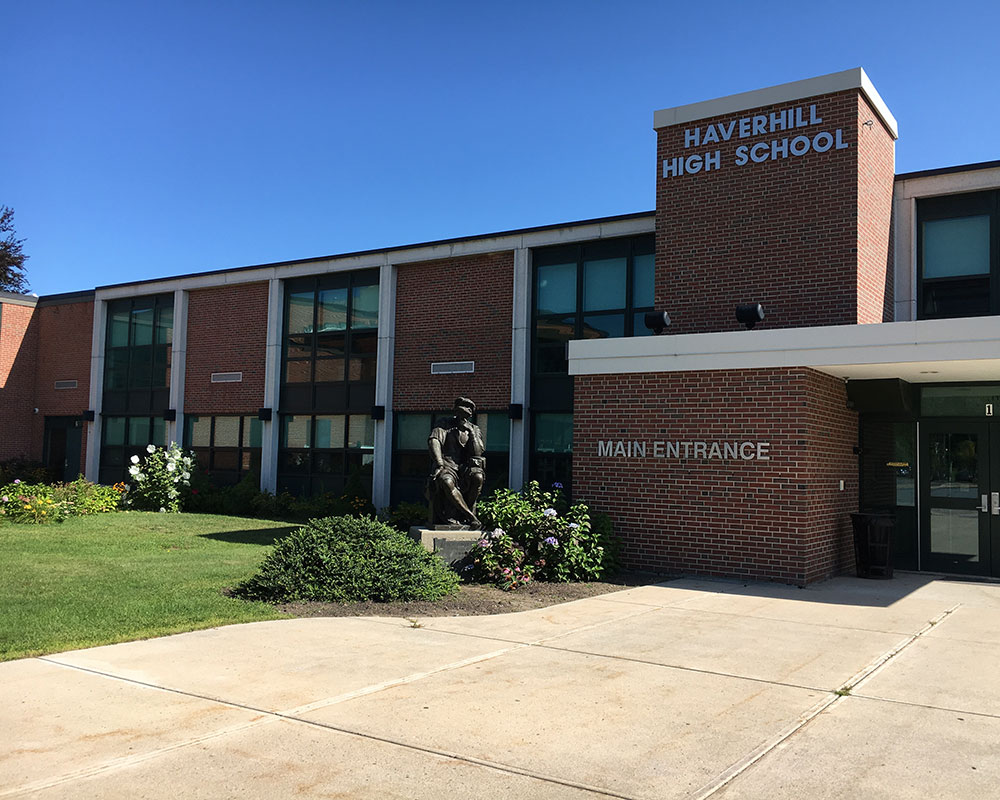Up to 90 cameras, the alarming of Haverhill High School’s many entrances and other measures are among stepped up efforts to combat misbehavior in school.
School Superintendent Margret Marotta told School Committee members recently that such issues have sprung up nationwide.
“I think that the reality is, whether you call it COVID or you call it something else, our children’s lives have been dramatically disrupted and we’re seeing the results of that in our schools,” she explained.
Marotta, who moved her office to the high school earlier this month to get an up-close look at problems, said her team has developed a four-prong plan to create a safer learning environment for students there and all of the public schools.
“First and foremost is physical safety. After that we really need to look at mental health. Third is consistent consequences, what the rules are and what the limits are and, once we have all those things in place, we need to build a community and that’s the way we see the problem,” she said.
Beginning with the first prong, the superintendent said, she has contracted a security firm to work at the high school through the end of the school year. In addition, the administration plans to install security cameras throughout the school. Haverhill’s Facilities Director Steven D. Dorrance, who also has a background in law enforcement, said they are purchasing them now.
“We’ve identified at least 61 locations that need cameras at the moment. I think we’ll add a total of about 90 cameras,” he said.
Dorrance also discussed plans to secure the building itself, noting there are at least 35 access points at the high school that need to be monitored and/or alarmed.
The administration is also considering metal detectors at school entry points, but no decision has been made while the pros and cons are weighed. In addition, an ALICE drill is scheduled in the near future. ALICE stands for Alert, Lockdown, Inform, Counter and Evacuate, developed primarily for an active shooter situation.
The second prong addresses mental and behavioral health. Marotta reported this is an area where the schools face shortages of support counselors and other personnel. She admitted more help is needed, but difficult to find.
Director of Counseling and Support Services Jami Dion added the goal is to find agencies to aid students and families to receive whatever help they need, but success has been limited.
“Right now, our mental health agencies are just as short-staffed as anyone else. So, we’ve had about 189 referrals. One hundred nineteen of those referrals have been picked up for services. Right now, we have 70 students currently on a wait-list,” she said.
Marotta said there are also alternative placement programs for students who do not thrive in a traditional high school environment, but it still is not enough.
Bonnie Antkowiak. chief of Teaching and Learning at Haverhill High, said the third prong involves consistency of consequences for misbehavior. She explained there are a range of consequences from detentions and parent/guardian meetings to suspensions, depending upon the seriousness of the misconduct. She said there has been an average of five students sent home daily since the second week of April.
The superintendent said, however, she has noticed a decrease in the temperature level among students in the past week.
The final prong is community building among students. Director of Title I and Community Outreach Dianne Connolly said this includes such programs as student voice forums, internships, clubs and activities. She said they are also looking to involve parents and others.
“We’re going to put some focus groups together, and this is where we need your help. We want community partners. We want school committee. We want parents. We want students. We want this to be the best educational experience for all children,” she said.
The superintendent said the department is not only punishing bad behavior, but developing ideas such as t-shirts and other rewards for students who follow the rules.

